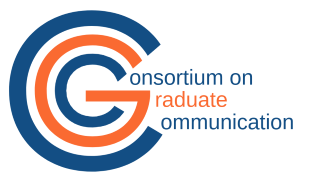This page contains samples of graduate students’ communication needs analysis instruments (e.g., student and faculty surveys, interview questions). They have been contributed by CGC members and are curated by Jin Pennell (jinkim7@illinois.edu). Please consider submitting a needs analysis tool you have developed by emailing Jin or info@gradconsortium.org.
1. General Communication Needs Surveys
Michelle Cox, Faculty Survey on International Graduate Students & International Graduate Student Survey
These surveys are part of a needs analysis I conducted at Dartmouth to serve as the basis of a proposal for a graduate communication support program, which would include both student-focused programs (such as courses and peer tutoring) and faculty-focused programs (such as faculty development presentations and workshops). At that time, graduate communication support was limited to tutoring by one professional tutor. The needs analysis included three surveys, one targeting international graduate students, the second targeting the faculty who work with these students, and the third targeting international post-docs. Some of the survey questions were adapted from surveys developed by Angela Dadak (her survey was published in Cox, 2011) and Steve Simpson (as presented at CCCC, 2013). In addition to the surveys, I conducted interviews with faculty who directed graduate programs within departments, as well as leaders of student support programs. I was attempting to map available support, figure out the kinds of writing and speaking support needed by international graduate students and post-docs, and figure out campus climate in relation to linguistic and cultural diversity.
Nigel Caplan, Needs Analysis of Language Skills for International Students in the MBA Program & Language Skills for International Undergraduate Students
Our students are the majority of full-time MBA students, so their success is important to us and the school of business. We were approached by faculty concerned about students’ performance, so we agreed to conduct a needs analysis to see how we could improve our pre-matriculation program. The results showed us that we needed to focus on business genres like case analysis and reports, and especially on speaking skills. This helped us refocus our classes, and we’re getting much more positive feedback from the business school. I was inspired in part by Dana Ferris’s listening/speaking needs analyses (Ferris & Tagg, 1996) and research into academic writing skills across the curriculum (Cooper & Bikowski, 2010; Horowitz, 1989). The undergraduate needs analysis was based on the MBA one and was conducted as the first stage in a comprehensive overhaul of our undergraduate EAP program. We gave that to faculty and students and learned that we needed to do more to integrate skills and make our classes more closely resemble university ones.
Brad L. Teague, EIS Needs Analysis Faculty Survey & EIS Needs Analysis Student Survey
Duke’s English for International Students (EIS) program is conducting a needs assessment in 2022-2023 to better understand the language needs of Duke’s graduate and professional students whose first language is not English. The results of this assessment are being used to reexamine the EIS curriculum and ensure that the program continues to effectively address students’ needs.
2. Writing Needs Surveys
Jin Pennell, ESL Graduate Student Writing Needs Survey (Business Student Survey)
The survey has been administered to international graduate students enrolled in ESL 501 and 502 (academic writing courses with a focus on research writing for students from all disciplines) and ESL 505 (an ESP course for business students). The purpose is to identify common writing tasks and challenges students encounter outside of ESL courses (for their coursework and research) in order to determine whether and how modifications to current curriculum should be made to accommodate these needs. This survey also measures students’ overall satisfaction with ESL curriculum and their preferences for alternative curriculum options in terms of format (semester-long vs. short-term courses) and content. As part of the survey, we collect assignment prompts for the writing tasks students find most challenging (item #10) to cross-check with their description/understanding of the assignments (inspired by Cooper & Bikowski, 2007). The survey is administered towards the end of the semester because most students in these courses are first year students and are not yet well-aware of the types of writing tasks and challenges in their graduate study at the beginning of the semester.
3. Speaking Needs Surveys
Jin Pennell, ESL Graduate Student Speaking Needs Survey
The survey is being administered to international graduate students enrolled in ESL 500, 503, 505, 510 (courses with some or entire focus on speaking skills. please refer to “Course Syllabi” page for more info). The purpose is to identify common speaking tasks and challenges students encounter outside of ESL courses (for their coursework, research or job search) in order to determine whether and how modifications to current curriculum should be made to accommodate these needs. This survey also measures students’ overall satisfaction with ESL curriculum and their preferences for alternative curriculum options in terms of format (semester-long vs. short-term courses) and content. The survey is administered towards the end of the semester because most students in these courses are first year students and are not yet well-aware of the types of writing tasks and challenges in their graduate study at the beginning of the semester.
To submit your own needs analysis, please email us for directions: info@gradconsortium.org


Recent Comments